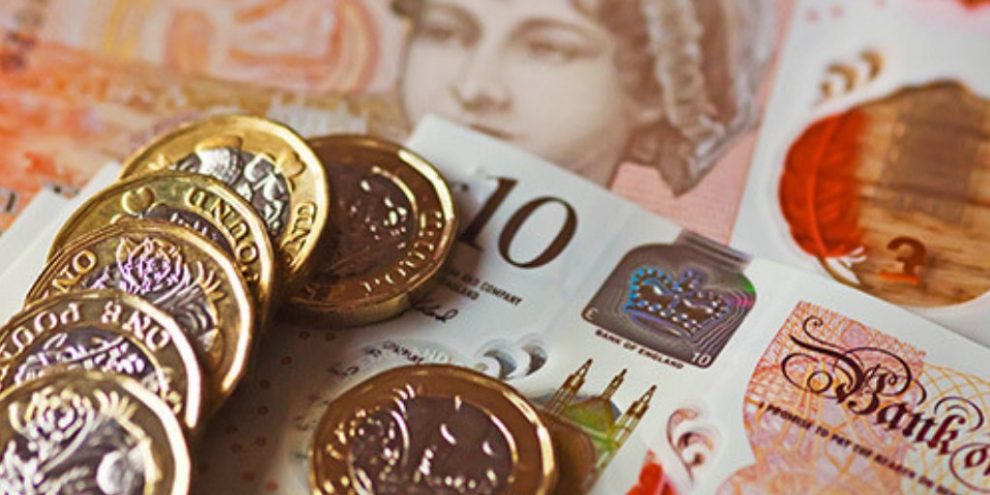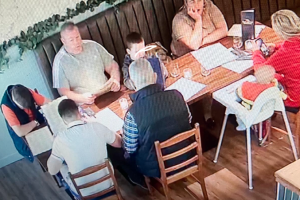SHOCKING data released suggests that total bills are far higher than earnings for the poorest 60% in our society as living conditions could spiral to lows not experienced in decades.
As inflation rises again, taking the UK to the highest rate of inflation for more than 40 years, the poorest in our society will not earn enough to cover their bills and are finding themselves in deficit budgets.
On Wednesday, the ONS revealed that inflation up to the end of May has risen to 9.1%, however it is expected to hit 11% by the autumn.
The UK Governments’ Chancellor Rishi Sunak has claimed that the government is doing all they can to combat the surge in prices.
But data released by The National Institute of Economic and Social Research (NIESR) says that despite the Chancellor’s additional support to households, it still estimates millions of households will face food and energy bills higher than their income.
For the poorest in Wales, essential bills such as food, energy and housing currently account for more than half of their monthly income, with all three areas seeing huge increases in prices and further rises predicted before the year is out.
This may see the poorest households fall behind on essential bills or turn to high interest lenders in desperation.
Joanna Elson, Chief Executive of The Money Advice Trust, said: “With inflation now at 9.1 percent, rising costs are weighing heavily on household budgets. For many people, the increasing burden of high prices is already taking its toll and is only adding to the difficulty of meeting day to day costs.
“At National Debtline and Business Debtline we are hearing from more and more people with deficit budgets – where their income simply isn’t enough to cover their basic needs. Our worry is that options are running out for people who are already in financial difficulty.”
Food inflation is currently running at 8.3% which is the highest rate in 13 years.
With one major supermarket saying that shoppers are setting £30 limits at tills, swapping to own brand products and taking advantage of yellow stickered items in a bid to tighten their belts.
Lord Rose, Chief Executive of Asda said that the Bank of England and Ministers were too slow to react to rising inflation.
He said: “I think the Government and the Bank of England have been slow to recognise inflation coming.
“We saw the signs last year that inflation was coming. I think the actions that have been taken to curb it have been a bit slow in coming.”
Stagnant wages and rising inflation has meant that real incomes will drop 4.1% this year.
The UK has not seen the inflation rate stand at 9.1% since March 1982.
For those in the richest percentile the drop will not make as much of an impact, but for those on minimum wage, the drop will mean that their income will not stretch far enough to cover their outgoings, when non-essentials such as travel and recreation is taken into account.
The NIESR forecasts that the consumer price inflation will rise to double-digits towards the end of the year and will remain above target going through into 2023.
Especially when you take into account the planned energy price hike coming into force in the Autumn and with food industry bosses predicting food prices will continue to rise.
Interest rates have been raised from 1% to 1.25% in an attempt to curb inflation levels, by encouraging people to borrow less and save more, however if rates are hiked too quickly it also heightens the risk of the UK economy breaching recession levels.
For those on variable mortgages this will also increase the amount they will need to repay each more, putting more financial strain on families.
The market research firm Kantar forecasts that the average food bill for UK households will cost £380 more this year.
Andy Barr, retail expert and co-founder of online price tracking website www.alertr.co.uk, commented:
“With inflation now at its highest level since March 1982, and with the Bank of England anticipating further rises later in the year – this news is especially worrying for the most vulnerable households across Britain, who were already struggling before the current inflation began.
“Unfortunately, more gloom lies ahead though with prices rising across the board, from household staples such as bread and meat to the skyrocketing cost of petrol and diesel. This will inevitably cause more low-income families to feel forced to make devastating choices in their lives as living standards continue to plummet and wages fail to grow. Soaring food costs are also playing a part and we’ve already witnessed British shoppers bulk buying everyday items like tea, coffee and tinned goods to save money – but it’s only set to get worse.
“To help cope with the ongoing cost of living crisis, everyone should take full advantage of the Government support available, and we hope this’ll start to stretch further with Rishi Sunak promising to get £1,200 to the eight million most vulnerable households, to combat rising prices. Aside from this, we’d suggest looking around for the best deals possible, especially when grocery shopping. As well as this, try implementing some money-saving changes like eating out less, planning meals ahead of time, cooking from scratch and switching from named brands to own-label products; it’s even worth shopping in the evenings to get those yellow sticker labels too.”


















